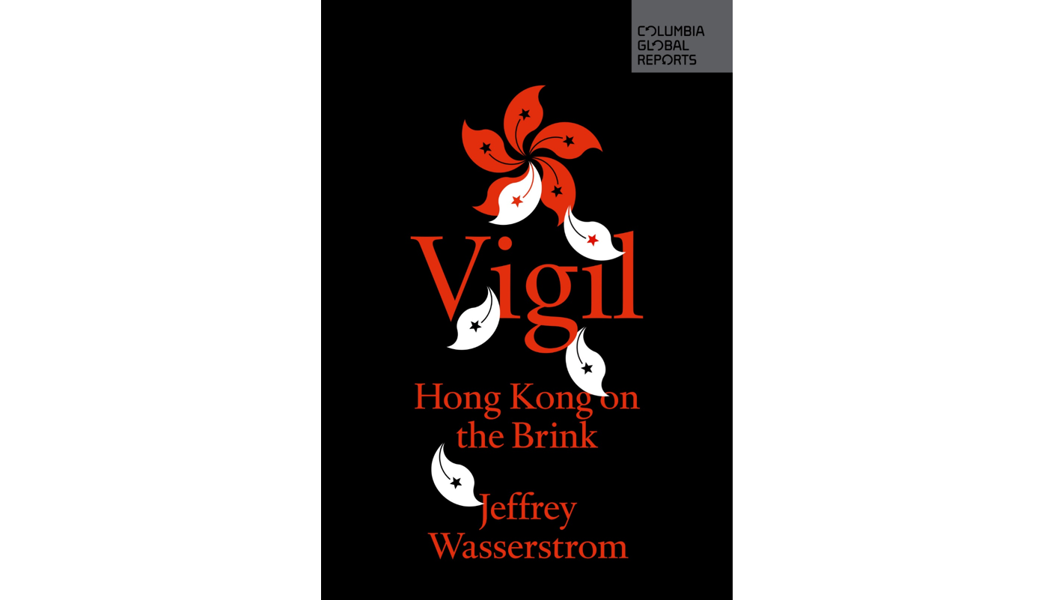
Columbia Global Reports Peer through the Tear Gas to Take Stock of Global Democracy
For Professor Jeffrey Wasserstrom, the “death of Hong Kong as we know it” is only the beginning of the story.
The Columbia Global Reports make important issues around the world accessible, combining scholarly analysis with journalistic storytelling in a series of timely, quick-read books. A 2019 SNF grant provided support for two books in the series, each offering a different snapshot of the state of democracy around the world. The first of these is out now.
Vigil: Hong Kong on the Brink, by University of California Irvine Professor Jeffrey Wasserstrom, draws back the curtain on recent “David-versus-Goliath” pro-democracy protests in Hong Kong. In a review in The Wall Street Journal, Adrian Ho writes, “Mr. Wasserstrom offers a vivid narrative of Hong Kong 'on the brink.'”
Interviews with Wasserstrom have recently appeared in outlets including The Nation and The South China Morning Post, and related pieces by the author have appeared in The Atlantic and The Guardian, among other publications. Wasserstrom discusses the book in a recent episode of the podcast UNDERREPORTED with Nicholas Lemann, Director of Columbia Global Reports.
We asked Lemann, who is also a former Dean and current faculty member of Columbia University’s Journalism School, about Columbia Global Reports and the two books checking in on democracy around the world.
Q: What goes into the selection of each book’s topic?
Q: What goes into the selection of each book’s topic?
Nicholas Lemann: We look for authors and topics that can combine fresh reporting, a new argument, and good writing. We do not want to replicate anyone else’s work, so we put a lot of effort into being the first serious book-length treatment of a topic that deserves attention.
Q: Why did you decide to focus this and two forthcoming books on the health of democracy, democratic norms, and public discourse?
NL: The last few years have seen a startling rise in authoritarian governments around the world, along with weakening of institutions, political polarization, and deteriorations in public discourse. Can democracy claim to stem this alarming surge and solve the growing political problems we face? The upheavals in Hong Kong and the return of socialism to the left seem to be perfect ways for us to interrogate that question in perhaps the two most important countries in the world, China and the United States, and they represent two of the most unresolved dilemmas around the globe. Our books on political upheaval in Hong Kong and the United States are connected. The turn of the millennium was accompanied by a lot of predictions that capitalism and Hong Kong's freedoms would bring democracy to the rest of China. They were wrong. Others thought that the U.S. had vanquished the Soviet Union and ended the Cold War, and that capitalism would reign supreme and relegating socialism to a footnote in history. They were also wrong. We were lucky to find prized Chinese historian Jeffrey Wasserstrom and seasoned political journalist John Judis to tell these stories, and help us understand the significance of the changes that are unfolding today.
Q: What does Columbia Global Reports add to the media landscape?
NL: In the Internet era, readers have access to the work of almost all news organizations, so it’s essential that each new news organization have a distinctive niche. Ours is, narrowly, publishing fairly short books fairly quickly—they are longer than any magazine would publish and they come out faster than any trade publisher’s books. More broadly, we look for important topics that are not being covered properly by the mainstream press, which tends to focus on breaking news. We aim to bring larger vital issues that are being ignored into the public conversation.
Q: What does support from a foundation like SNF enable Columbia Global Reports to do that it couldn’t otherwise?
Q: What does support from a foundation like SNF enable Columbia Global Reports to do that it couldn’t otherwise?
NL: Without foundation support, we would not have the ability to attract experienced and respected authors who are able to draw on deep historical context, and we would not be able to send them around the world to report on profound changes and events on tight deadlines that make our books immediate and impactful. We also are able to promote our books much more energetically because of foundation support, and so to get them the attention they deserve.